Prices of 400 medications rise in Iran
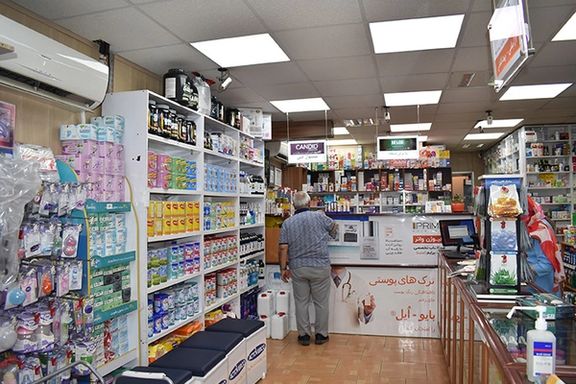
Prices of roughly 400 medications covered under Iran’s national healthcare system have increased from 10-20% or even several times higher, the country’s social Security Organization said.

Prices of roughly 400 medications covered under Iran’s national healthcare system have increased from 10-20% or even several times higher, the country’s social Security Organization said.
Shahram Ghaffari, Deputy Director of Treatment at the Social Security Organization, said on Wednesday that insurance organizations were slow to implement the new prices, further complicating the country's healthcare crisis for both patients and healthcare providers.
Ghaffari emphasized that with no change in drug subsidies, the financial burden on both insurance companies and individuals has intensified. “As in the past, 30% of the price of outpatient drugs is paid by the insured and 70% by the insurer, and in the inpatient sector, 10% is paid by the insured and 90% by the insurer.”
Iran is grappling with a broader drug crisis. Shortages of over 100 medications, including vital treatments for cancer and rare diseases, have become increasingly common. Concerns about counterfeit drugs, which pose a serious risk to patients' health, are also on the rise.
The Iranian Pharmacists Association recently issued a warning about the non-payment of pharmacies' claims by insurance organizations, saying that the Social Security Organization has only paid a fraction of what is owed.
The fluctuating value of Iran's currency is also a major contributing factor. As the rial's value plummets against the backdrop of fading US talk prospects, the price of everyday goods, including medications, has climbed beyond reach for many, one third of the country living below the poverty line.
Iranian lawmakers have warned that removing subsidy for essential medicines could lead to even more drastic price hikes, potentially making life-saving treatments unaffordable for many Iranians.
Health officials have echoed these concerns, predicting potential price increases of seven to ten times the current levels if the cheap dollar is eliminated.
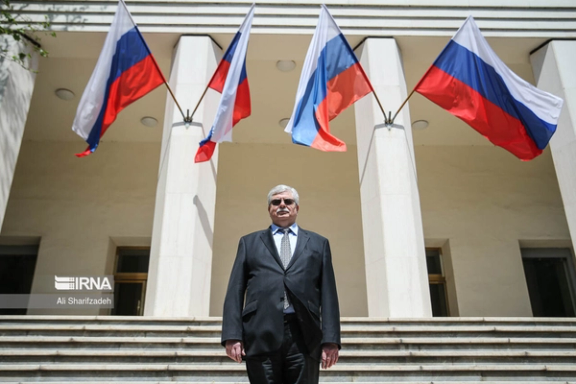
Russia's envoy in Tehran said that Western countries are trying to marginalize Russia and China in discussions regarding Iran's nuclear program.
“The Russian Federation has been in this format (P5+1) from the very beginning. And, naturally, we expect that the relevant negotiations will continue in this format, since we have information that, unfortunately, Western countries are trying to wean Russia and China from this process.
"Without Russia and China, such negotiations will never achieve their goal and will not be productive," Alexey Dedov said in an interview with RIA Novosti on Tuesday.
Dedov's comments come amid a period of diplomatic impasse concerning the Joint Comprehensive Plan of Action (JCPOA), a pact that fell apart after the United States withdrew from it in 2018 under President Donald Trump.
Attempts to revive the agreement have stalled following Russia's invasion of Ukraine, which has intensified geopolitical tensions.
Iranian Supreme Leader Ali Khamenei rejected the chance of holding negotiations with the US this week as President Donald Trump reinstated his maximum pressure policy.
Russia remains a critical partner in Iran’s nuclear infrastructure, spearheading projects such as the expansion of the Bushehr Nuclear Power Plant.
Dedov said that Moscow and Tehran are working to complete the plant's second and third units, an initiative he described as vital to addressing Iran’s energy challenges.
The ambassador also spoke about the relationships between the two countries, referencing a recently signed strategic partnership treaty designed to enhance collaboration in various areas.
Tehran and Moscow first established a long-term agreement in March 2001, known as the Treaty on the Foundation of Mutual Relations and the Principles of Cooperation between the Islamic Republic of Iran and the Russian Federation Act. The initial treaty was valid for a decade and was later renewed twice, each for an additional five years.
Even though there have been talks of a new agreement since 2020, no updated treaty has been completed.
Iran and Russia have faced criticism, with Iranian analysts expressing doubts about Moscow's dependability.
Ataollah Mohajerani, a former government official, previously cautioned in Etemad newspaper that Russia could forsake Iran if it served its own interests.
Despite external pressures and internal doubts, both countries are advancing their joint initiatives, such as the North-South International Transport Corridor, which aims to improve trade routes linking Russia to the Persian Gulf.
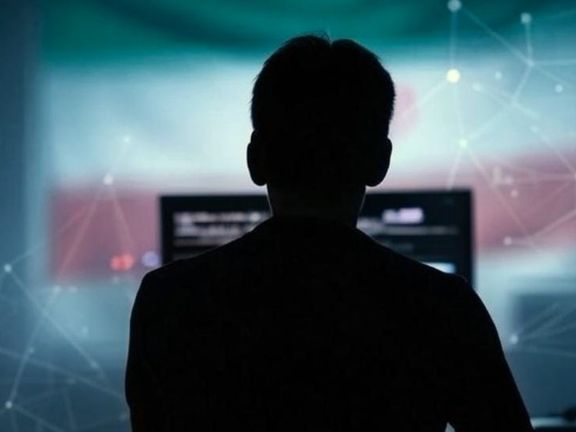
Iran has expanded its cyber warfare capabilities in recent years, exposing vulnerabilities in US defenses, meddling in election campaigns even, while policymakers in Washington debate the proper response.
As a cyber espionage investigator focused on Iranian state-sponsored hacking, I’ve observed these operations evolve steadily—from initial reconnaissance to targeted intrusions.
Even when US agencies unmask these hackers, legal and enforcement actions often drag on for months or years, allowing adversaries to rebrand and operate under new aliases.
Yaser Balaghi Inalou, one of three Iranian hackers recently indicted by the Department of Justice for a hack and leak operation targeting the 2024 presidential election, was exposed as early as 2015 by the Israeli security firm Check Point.
Had US agencies exposed him at the time, it might have fractured his network and even disrupted the attack on Donald Trump’s 2024 campaign.
With President Trump’s second term underway and the possibility of deepened tensions between Tehran and Washington, a cohesive and decisive strategy to address this threat seems imperative.
Intelligence agencies may unmask hackers quickly. But those unmasked would regroup and evolve if legal and enforcement responses are delayed. Greater collaboration may be required between federal agencies like the FBI and the Department of Homeland Security, even with private cybersecurity firms, to ensure swift countermeasures such as targeted sanctions and asset freezes.
Also important would be rebuilding trust in US whistleblower programs. Insider intelligence from those with firsthand knowledge of Iranian cyber operations—whether from inside Iran or abroad—can be invaluable.
The current track record of the Rewards for Justice (RFJ) program discourages potential informants. Its FAQ page still highlights cases from 1995 and 2007, with no reference to payouts for whistleblowers in Iranian cyber operations.
Providing a recent example on its website or social media could restore credibility and encourage more people to come forward. As it stands, many of those engaging with the program on social media view it as more of a stunt than a serious incentive.
Public exposure of Iranian cyber operatives is another critical measure. Many operatives hide behind the guise of IT professionals. Publishing updated lists of identified operatives in English and Persian could help rid these groups of the secrecy on which they rely.
Sanctions and asset seizures also remain powerful tools. Iran’s cyber operations are largely directed by state entities like the Ministry of Intelligence and the Islamic Revolutionary Guard Corps (IRGC), already designated as a terrorist organization by the US. Expanding efforts to track and freeze financial assets tied to these entities could significantly disrupt Tehran’s ability to fund its hacker networks.
The importance of swift and proportional countermeasures cannot be overstated. Delayed responses—sometimes by as much as a year—reduce deterrence and embolden threat actors.
Strengthening alliances and building a collective defense mechanism would also enhance deterrence by creating a more formidable response.
The United States relies on digital systems, from essential public services to financial networks. As the reliance grows, so does the threat posed by Iranian cyber operations, likely expanding as Tehran tries to avoid traditional military confrontation.
With the changing of the guards in Washington, new policies should be devised to protect the US digital infrastructure while holding Iran accountable for its online aggression. The implications of inaction are clear—continued vulnerability and escalating threats.
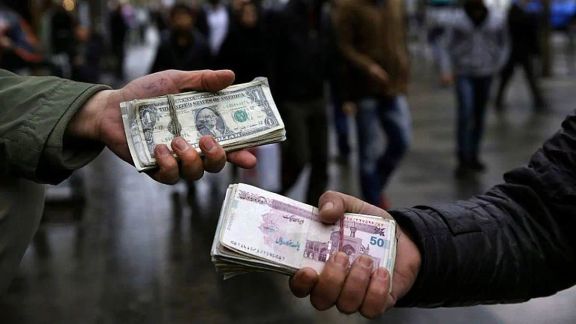
The rapid depreciation of Iran's national currency in recent weeks amid fading prospects of direct talks with the US has deeply unsettled many Iranians who face ruin in their daily lives and businesses.
Concerns over further devaluation of the rial are troubling not only ordinary citizens facing soaring prices for essentials like food, housing, and medicine but also producers reliant on imported raw materials.
“As a manufacturer, I must say I can no longer continue production under these circumstances,” Kambiz Ghasemi Jokar, a manufacturer of protective film, posted on X on February 9. He assured customers he would fulfill existing orders but lamented that maintaining his business was no longer viable given the uncertainty.
The rapid fall of the Iranian currency has fueled fears of hyperinflation. “A dollar at 900,000 rials means the destruction of the middle class, civil servants, retirees, and renters, while corruption increases,” Narges Molaei, an Iranian X user.
To reassure the public, Central Bank of Iran’s Economic Deputy Mohammad Shirijan told the Iranian Labour News Agency (ILNA) on Tuesday that inflationary effects from rising forex rates would be minimized.
However, inflation expectations have spiked since late December, when the dollar stood at around 760,000 rials, and especially after Supreme Leader Ali Khamenei’s speech last week rejecting talks with the U.S.
With the Iranian New Year approaching (March 20), demand for imported goods which need foreign currency is increasing, likely pushing rates even higher.
The price of gold has surged alongside the dollar, as many rush to convert savings into gold. Reports circulating online, which have not been verified by Iran International, suggest authorities have restricted bank accounts of forex exchanges and gold traders on Tuesday to curb further price hikes.
“They’ve locked the market—there have been virtually no transactions today,” a gold trader claimed on X. The reports also indicated that curbside forex dealers on Tehran’s Ferdowsi Street, the country’s foreign exchange hub, were intimidated into halting trades.
On Monday, February 10—the anniversary of the Islamic Revolution and a public holiday—citizens reported the rial had fallen to around 940,000 per dollar in the open market.
On Tuesday, state-linked media such as Tasnim News Agency claimed the rate had dropped below 900,000 but social media posts suggested otherwise, with some online forex platforms still reporting rates above 910,000.
The Tehran Stock Exchange (TSE) also reacted to the uncertainties and the looming danger of maximum pressure sanctions on Tuesday with a 1.32 percent drop in its index.
Economic expert Dalga Khatinoglu told Iran International that exchange rates often spike after political shocks—such as Khamenei’s speech or Iran’s recent missile attacks on Israel—but stabilize afterward, though never returning to previous levels.
He also said Iran’s oil revenue has declined, as exports dropped from 1.9 million barrels per day (bpd) in September to around 1.4 million bpd. Meanwhile, US sanctions on 45 oil tankers have increased transportation costs, further restricting Iran’s access to foreign currency.
Ultra-hardliners blame the relatively moderate government—particularly Economy Minister Abdolnaser Hemmati—for the economic turmoil including the chaos in the forex market.
On Tuesday, nearly 90 lawmakers submitted a motion to impeach Hemmati, which has now been referred to Parliament’s Economic Committee for review.

Iran's envoy to the United Nations has condemned Donald Trump’s threat to use force against the Islamic Republic, warning that any act of aggression will have severe consequences for which the US will bear full responsibility.
"The Islamic Republic of Iran firmly rejects and condemns this reckless threat," Iran's permanent ambassador to the UN Amir-Saeid Iravani said in a Tuesday letter to the UN Security Council.
In his letter, he cited Trump's interviews with The New York Post, in which he said he would prefer a deal with Iran to "bombing the hell out of it."
Trump also told Fox News "there are two ways to stop Tehran from developing a nuclear weapon: ‘With bombs or with a written piece of paper’."
In his letter to the Security Council, Iravani said, "The UN Security Council must not remain silent in the face of such brazen rhetoric, as normalizing the threat to use force sets a dangerous precedent and must be unequivocally condemned."
He warned that "any act of aggression will have severe consequences, for which the US will bear full responsibility."
"As a responsible member of the United Nations, committed to upholding peace, security, and international cooperation, Iran will resolutely defend its sovereignty, territorial integrity, and national interests against any hostile action."
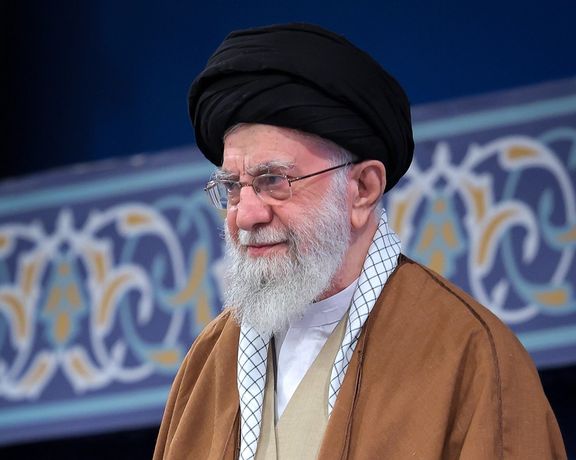
Iran's Supreme Leader is unwise to dismiss nuclear talks with the United States and President Donald Trump will bring a muscular approach to confronting its Mideast foe, two US senators told Iran International on Tuesday.
Asked about Iran's Supreme Leader Ali Khamenei's characterization of any negotiations with Washington over Tehran's disputed nuclear program as unwise, Republican Senator Rick Scott said, "I think he's foolish."
"If you look at everything he's been trying to do, it's failed," the Florida Senator said at the sidelines of a bipartisan luncheon, citing setbacks to Iran's network of militant allies in the region at the hands of Israel's US-armed military.
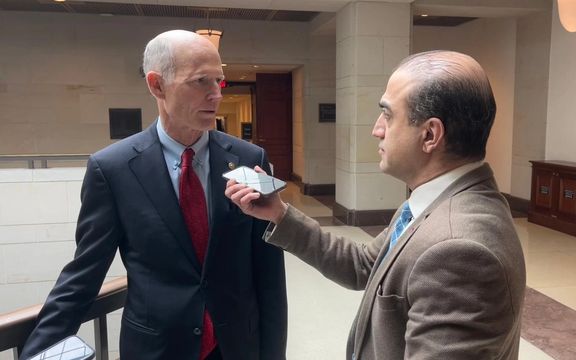
The 15-month campaign has put on the backfoot an array of Islamist armed factions in the occupied Palestinian territories, Lebanon, Iraq and Yemen have long been funded and armed by Tehran.
Israel decapitated the leadership of Hezbollah in Lebanon and helped bring about the downfall of the Assad dynasty in Syria, Iran's oldest Arab ally.
The blows and a direct attack on Iran on Oct. 26 have left Iran weakened and brought the issue of Iran's disputed nuclear program and a deal to resolve it in greater focus.
"Clearly everybody would rather them decide not to have a nuclear weapon and stop giving money to their proxies," Scott said. "We feel sorry for the people of Iran, but they're going to have to take matters in their own hand and get a better government."
Trump has said he much prefers a deal over Iran's nuclear program over any military confrontation but reimposed harsh sanctions from his first term.
The renewal of the so-called "maximum pressure" campaign has cheered Iran hawks in Washington, mostly Republicans, who long criticized what they viewed as a permissive attitude by the Joe Biden administration on Iran.
Democrats meanwhile have struggled to mount an effective opposition to Trump's blizzard of executive orders aimed at downsizing government and reining in policy priorities they championed under Biden.
Their qualms with Trump in the foreign policy sphere have mostly focused on the planned gutting of USAID, the world's largest donor of humanitarian aid.
"Quite honestly, Iran has gotten really used to a paper tiger in the White House," Senator Kevin Cramer of North Dakota said. "They no longer have that. And I think we have to flex our muscles and then back up whatever it is we say."
Cramer told Iran International's Arash Aalaei that Khamenei's remarks ought not to shock Washington but rather bring into focus the nature of their adversary, expressing no misgivings about Trump's stated reluctance to punish Iran and preference for an agreement.
"I have no doubt that when (Trump) says he wants to sit down and negotiate, he's going to be negotiating with somebody who he's got a headlock on."